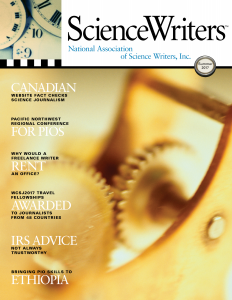By Julian Block
Taxpayers who make mistakes on their 1040 forms are subject to stiff penalties and interest charges, all nondeductible. Are taxpayers excused from those assessments if they're able to show their reliance on information in the IRS's own publications? Only in whatever kind of life is yet to come.
IRS officials read the tax laws as authorizing them to disclaim all responsibility for inaccurate information that they give, whether as responses to telephone or walk-in inquiries or instructions that they print in their publications. They're consistently supported by the courts.For instance, you can't absolutely rely on the advice in the agency's annual bestseller, Your Federal Income Tax (also known to the taxman as Publication 17); a how-to guide on filling out Form 1040. It includes an unhelpful reminder: "You are still responsible for payment of the correct tax."
This has been made expensively clear to more than one person.
A case in point: A home seller relied on a mistaken comment, since corrected, in Pub. 17, and deducted a loss on the sale of his personal residence. The IRS disallowed his write-off and billed him for back taxes and interest charges.
The dispute was resolved by the Tax Court, which held that he'd run afoul of a long-standing rule. The only authoritative sources of law in the tax field, noted the court, are the Internal Revenue Code and the IRS's administrative regulations. An informal IRS publication simply isn't authoritative.
In another case of IRS misinformation, the judge ruled that it was "not reasonable" to rely on the word of an IRS employee, because a taxpayer's "only recourse is vigilant self-protection of his interest."
The ruling elicited this comment from District Court Judge Michael M. Mihm:
The case law has girded the Internal Revenue Service with a nearly impregnable shield against the people it serves. Beginning with a Code which in its complexity is well nigh unfathomable to the average citizen … the judicial coup de grace is executed with the insistence that, if the taxpayer could find the relevant section and if he could be assured that there is not some supervening or nullifying regulation elsewhere and if he could then read and understand it, his reliance on the verbal representations of an agent [is] unreasonable.
On a personal note, my own favorite is, "It will be of little avail to the people that the laws are made by men of their own choice if the laws are so voluminous that they cannot be read, or so incoherent that they cannot be understood."
Think that was one of the warnings in opposition to ratification in 1913 of the Sixteenth Amendment to the U.S. Constitution, the change that authorized what has morphed into our current system of income taxes? You would be way off, by 125 years. That admonition actually appeared in The Federalist, also known as the Federalist Papers, a collection of 85 political essays that analyzed the constitution and urged its adoption.
They were written in 1787 and 1788 by Alexander Hamilton, John Jay, and James Madison. The trio chose to write under the name Publius to honor the Roman official who had a major role in setting up the Roman Republic.
Julian Block is an attorney and author based in Larchmont, N.Y. He has been cited as: "a leading tax professional" (New York Times); "an accomplished writer on taxes" (Wall Street Journal); and "an authority on tax planning" (Financial Planning magazine). _Information about his books is at JulianBlockTaxExpert.com.
(NASW members can read the rest of the Summer 2017 ScienceWriters by logging into the members area.) Free sample issue. How to join NASW.




